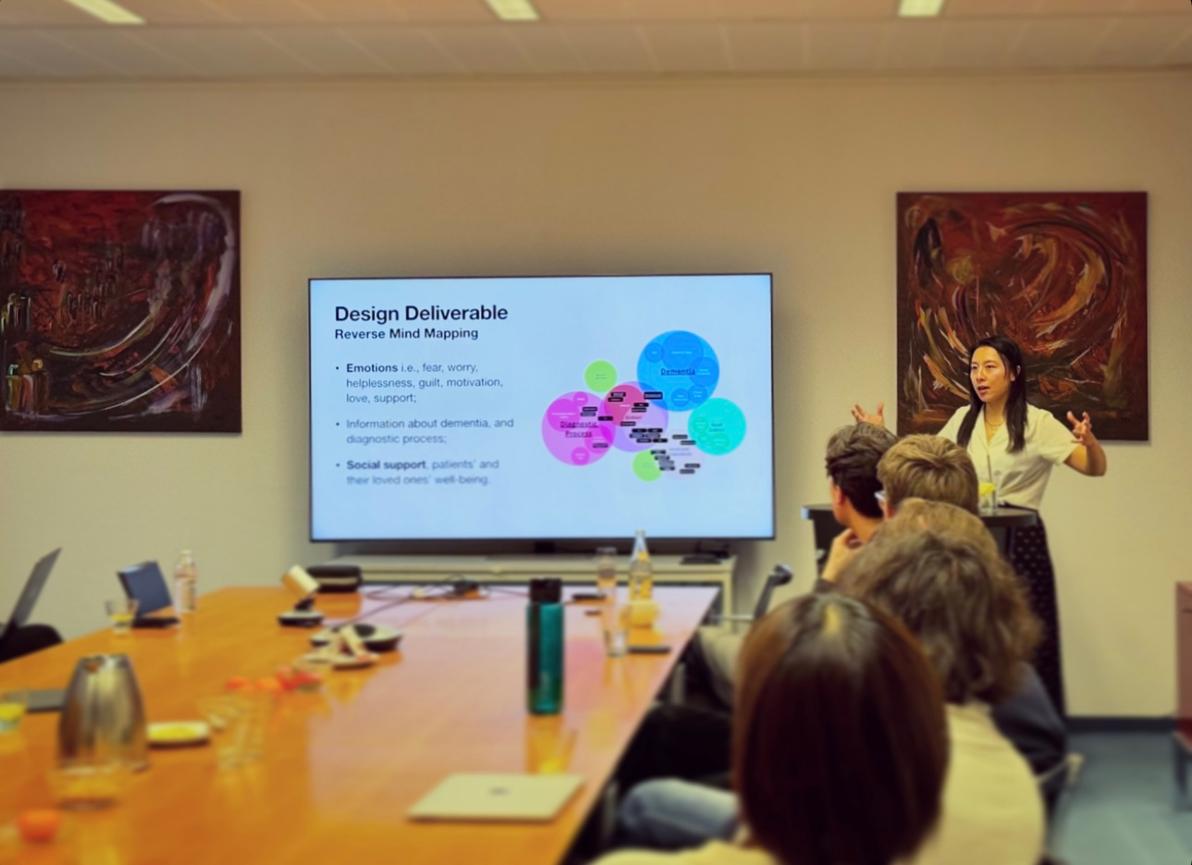Discover the latest insights on patient-centered healthcare communication from our February lab meeting. Follow Wei Hsu's exploration of empathy-driven digital health communication at Charité's Memory Clinic. Join us for an enlightening glimpse into the future of compassionate healthcare innovation.
In the realm of healthcare, where empathy meets innovation, our bi-weekly lab meeting in February offered a captivating glimpse into the future of patient-centered digital health communication.
Celebrating the successful conclusion of her master's thesis in our lab, Wei Hsu shared her research project titled "Case Study in Clinic — Patient-Centered Design in Digital Health Communication" during our lab meeting. Wei's project, undertaken as a crucial component of her journey towards the attainment of a Master of Arts degree in Leadership in Digital Innovation from the Berlin University of the Arts, delved deep into the intricate dynamics of healthcare communication, particularly focusing on dementia prevention—a pressing issue in today's aging society.
Lab Meeting Insights
Wei Hsu's research serves as an urgent call to action amidst the looming specter of dementia, with projections painting a stark picture of its exponential growth by the year 2050. In light of this impending crisis, Wei's work underscores the critical need for proactive measures and transformative shifts in healthcare communication. At the heart of her thesis lies a profound advocacy for patient-centered approaches, emphasizing the importance of empathy, understanding, and inclusivity in the delivery of healthcare services.
Delving into the intricate dynamics of patient-physician interactions, Wei's meticulous analysis unveils a central concern: Health Literacy. This multifaceted concept, viewed through the dual lenses of personal comprehension and organizational dissemination of healthcare information, emerges as a linchpin in shaping the quality and efficacy of healthcare delivery. Through her research, Wei elucidates how disparities in Health Literacy can profoundly impact patient engagement, treatment adherence, and overall health outcomes, highlighting the pressing need for interventions that address these disparities head-on.
In response to these revelations, Wei proposes a series of design recommendations aimed at fostering empathy-driven communication strategies within healthcare institutions. By tailoring digital health platforms to resonate with the diverse biopsychosocial needs of patients, Wei envisions a future where healthcare interactions transcend mere transactions, evolving into meaningful exchanges characterized by compassion, empowerment, and mutual respect. Through these efforts, Wei's work paves the way for a healthcare landscape where every individual feels seen, heard, and valued—an indispensable step towards achieving equitable and inclusive healthcare for all.
Wei conducted her observations in the Memory Clinic within the Neurology Department at the Charité, where patients experiencing memory loss attended consultations with neurologists.

Sum up
In conclusion, Wei Hsu's presentation offered a profound glimpse into the transformative potential of patient-centered design in digital health communication.
As we reflect on her insights, let us reaffirm our commitment to placing patients at the heart of healthcare innovation, ensuring that every interaction is infused with empathy, understanding, and a relentless pursuit of better health for all.
We extend our heartfelt congratulations to Wei Hsu for her contributions during her internship with our group, and we celebrate her remarkable achievement in completing her Master of Arts degree in Leadership in Digital Innovation at the Berlin University of the Arts.
